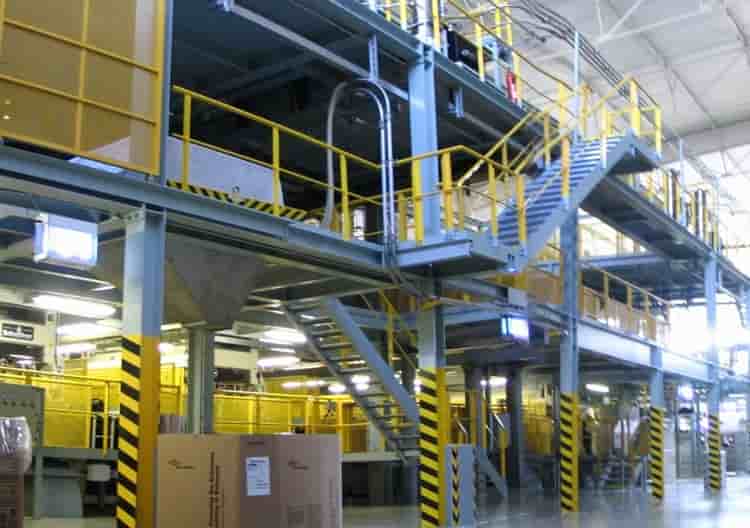Mixed-Recycled-Plastics – PE-PP 14-10-2022 - Arhive
Mixed-Recycled-Plastics – PE-PP
Crude Oil Prices Trend

Crude Oil Prices Trend Polyestertime
TekniPlex Healthcare, which utilizes advanced materials science expertise to help deliver better patient outcomes, will debut the world’s first fully transparent recyclable mid-barrier blister package at Pack Expo, October 23-26 in Chicago. At Booth W-13043, the company will showcase samples of its new materials science breakthrough, which includes barrier protection against moisture.
Recyclable in geographies where the #5 (polypropylene) recycling stream is available, the mid-barrier blisters feature a polyolefin blister film paired with a barrier PP lidding film. This marks the first time a formed blister + lidding combination is certified as recyclable– a significant milestone in the evolving push to make healthcare packaging more sustainable. From a manufacturing standpoint, initial machinability analyses have been positive, with large-scale tests scheduled for the near future.
In addition to debuting the mid-range barrier version at Pack Expo, TekniPlex Healthcare also will premiere a fully recyclable polyester mono-material blister + lidding combination, suitable for products that do not require barrier protection.
“The ability to make transparent barrier blister packages recyclable is a crucial step toward healthcare materials circularity, one in which technical challenges needed to be overcome with extensive research, trials and dedication,” said Chris Qualters, CEO of TekniPlex Healthcare. “We are exceptionally proud to be the first materials science company capable of meeting this longstanding market need, and we look forward to showcasing the new blister packages at Pack Expo.”
Pack Expo also will mark the launch of TekniPlex Healthcare’s new lower-weight reinforced coated paper for medical device protection. The company’s proprietary coating formulations and application technology result in rolls that can meet demanding performance and sterilization requirements. The reinforced coated papers are suitable for the packaging of a variety of common healthcare items including syringes; tubing such as IVs, catheters and airway filters; gauzes, sponges and bandages; and devices sterilized by EtO and radiation. Notably, the slimmed-down product has already received its first commercial order, from a prominent manufacturer of swab sticks.
Both the fully recyclable blister packages and lower-weight reinforced coated paper exemplify TekniPlex’s “Rethink Responsibly” concept, which commits to continually considering what it means to provide responsible solutions to customers, their consumers, and the planet. The approach reflects the company’s promise to perpetual progress across materials science design innovation, supply chain and operational efficiencies, materials reduction, closed loop manufacturing, and materials diversity, among other areas relevant to sustainability.
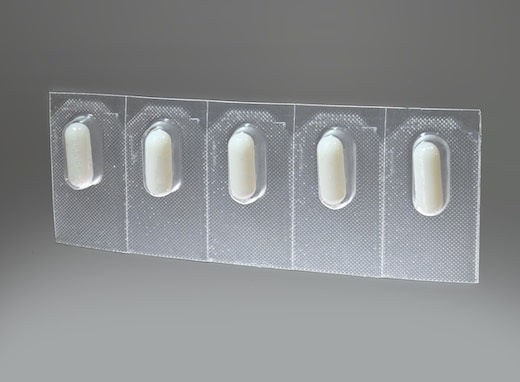
-European recyclers demand recycled content targets
European recyclers are urging EU decision makers to introduce mandatory targets for recycled materials in new products, as proposed EU waste shipment rules seek to excessively limit exports of almost 27 million tons of recycled materials outside Europe.
While European recyclers do not oppose export prohibitions of problematic waste outside Europe such as mixed plastics, indiscriminate restrictions will suppress demand for high-value recycled materials such as metals and paper.
“If MEPs want to ensure waste is recycled in Europe, they must enshrine binding targets for the use of recycled materials in intermediate products such as metals, paper, and plastics,” says Emmanuel Katrakis, Secretary General of EuRIC, the European recycling industries federation. “If export prohibitions go ahead, high-value materials destined for recycling will instead pile up in landfill or end up incinerated. Polluting extracted raw materials will have an advantage over recycling in the absence of appropriate market conditions,” he added.
Currently, only 12% of materials used in EU production come from recycling, and proposed export prohibitions would reduce this even further.
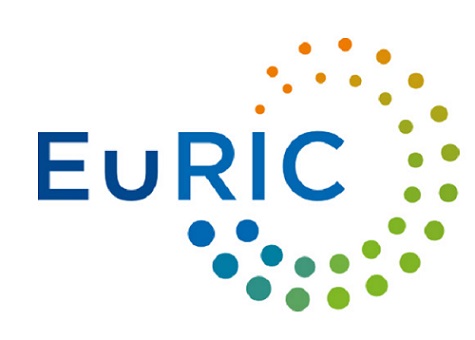
-Cobalt Catalyst Converts Mixed Recycled Plastics into Propane
Researchers were able to selectively break down plastic molecules and turn more than 80% of them into propane for use as fuel or feedstock.
A cobalt-based catalyst has been shown to break down mixed recycled plastics, including polyethylene (PE) and polypropylene (PP), into propane that can be used as fuel or even as feedstock for new plastics.
Research published Oct. 5 in the open-access journal JACS Au by researchers from MIT, the SLAC National Accelerator Laboratory, and the National Renewable Energy Laboratory detailed how 5 wt % cobalt supported on ZSM-5 zeolite catalyzed the solvent-free hydrogenolysis of commonly used plastics into propane.
The catalyst significantly reduced the formation of methane (CH4) that appears with bulk cobalt oxide or cobalt nanoparticles on other carriers, the paper noted, with zeolite providing stabilization of the dispersed oxidic cobalt nanoparticles.
With the metal loading optimized, it was also found that 10 wt % Co/ZSM-5 catalyzed the hydrogenolysis of low-density (LD) PE, combinations of LDPE and PP, and post-consumer PE. Hydrogenolysis utilizes H2 to cleave polymers into shorter alkanes, the study explained.
The long-chain molecules in plastics are held together by highly stable carbon bonds, making recycling a challenge. While current methods can break those bonds into various molecules, sorting out specific usable compounds requires complex refining. But by using the cobalt-zeolite catalyst, researchers were able to selectively break down plastic molecules and turn more than 80% of them into propane.
“Once you have this one compound, propane, you lessen the burden on downstream separations,” explained Yuriy Román-Leshkov, MIT professor of chemical engineering, in an article published Oct. 6 on MIT’s website.
The cobalt-zeolite method is also promising because both materials are inexpensive and plentiful, he added.
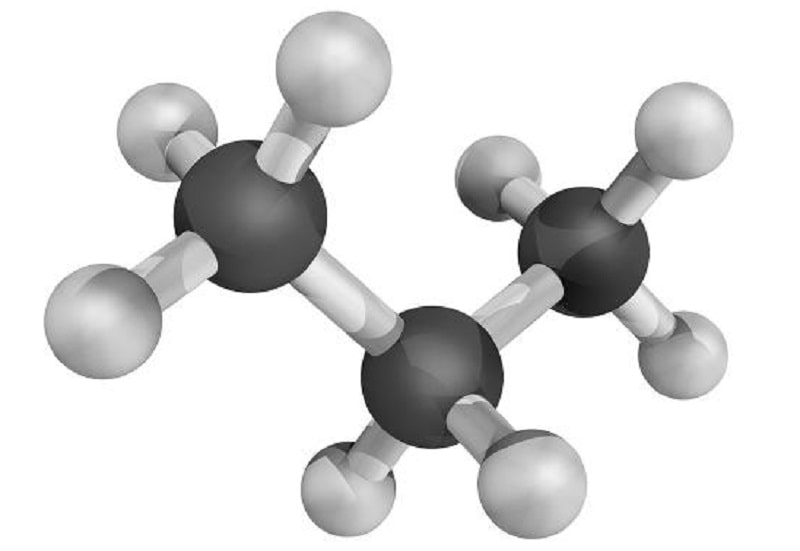
-Avantium Catalysis expands to fulfil growing demand for R&D in sustainable chemistry
Avantium N.V., a leading technology company in renewable chemistry, announces that its business unit Avantium Catalysis will expand its business to focus increasingly on R&D solutions for sustainable chemistry. In addition to providing advanced catalysis R&D systems and services to customers worldwide, the business unit will extend its offerings to target four emerging markets for sustainable chemistry: 1. Green hydrogen; 2. Chemical plastic recycling; 3. Adsorption; and 4. Sustainable chemical building blocks. Avantium Catalysis will be renamed “Avantium R&D Solutions”.
Avantium’s Catalysis business unit has for many years been helping companies accelerate their catalyst R&D by offering scalable catalyst test systems (Flowrence® and Batchington) and by conducting in-house catalyst research projects. Recently, there has been a significant increase in requests for R&D solutions in sustainable chemistry. With its unique capabilities in innovative chemistry R&D and engineering, Avantium is perfectly positioned to support this growing and attractive market segment.
Avantium will focus on four emerging markets in the field of sustainable chemistry, offering tailored, innovative R&D units and contract R&D. These four markets are: green hydrogen, chemical plastic recycling, adsorption, and sustainable chemical building blocks.
Green hydrogen: Avantium will focus on process development (integrated laboratory units) for water electrolysis to produce green hydrogen.
Chemical plastic recycling: catalyst and process development to upgrade pyrolysis oil from recycled plastics or biomass, for example by removing impurities such as oxygen, sulphur or nitrogen. This upgraded liquid is then used to replace fossil-based feedstock in the production of a variety of sustainable and circular chemicals and materials.
Adsorption: the growth in sustainable chemistry and bio-based products requires more purification of, and separation of contaminants from, product streams by adsorption. Over the past years, Avantium has already built and delivered tailor-made high-throughput test units for liquid, gas and respiratory adsorption for customers such as Ircelyon.
Sustainable chemical building blocks: Avantium will build tailored systems for customers to facilitate the chemical conversion from biomass to sustainable chemical building blocks.

-ENGEL creating ABS parts from recycled material at K 2022
To be able to move forward with the circular economy, it is essential to use pretreated plastic waste in a far wider range of applications. Visible components with premium surfaces have posed a particularly great challenge here thus far. To achieve premium surfaces directly from the mould surface using injection moulding without secondary operations, a high proportion of virgin material is usually required, if recycled material can be added at all.
At the K show 2022, ENGEL is collaborating with technology firm Roctool (Le Bourget du Lac, France) to demonstrate that there is a different approach. Electronic boxes in black are being produced on an e-mac 465/160 injection moulding machine. They are made from rABS sourced from post-consumer recycled plastics. The surface is high-gloss. The cavity is laser engraved to create innovative patterns on the top side of the box, and there are fixtures for installing fans and connectors on the side surfaces. The part is also ultra-thin – 1.2 mm – in order to save material. Conventional moulding would require thicker wall sections.
Smart assistance compensate for fluctuations
The key to the premium surface quality of this recycled component is the interaction between forward-looking machine and mould technologies.
The all-electric ENGEL e-mac injection moulding machine relies on mould temperature control, based on Roctool induction technology, to enable moulding precision and surface quality. The latest energy-efficient, compact air-cooled Roctool generators are being used at the K show.
The smart assistance systems from ENGEL’s inject 4.0 portfolio used in the e-mac machine make a further contribution to high quality in the processing of recycled materials. The smart assistance systems include iQ weight control, which detects fluctuations in the raw material and automatically adjusts the injection profile, the switchover point and the holding pressure to reflect the current conditions in the same cycle. In general, recycled materials are subject to greater batch fluctuations than virgin material, iQ weight control has a particularly positive impact in terms of achieving consistently high product quality in this application. At the same time, iQ melt control improves the homogeneity of the molten plastics by automatically adjusting the plasticising time to the optimum value for the application.
The application presented at the K show demonstrates the huge potential for the circular economy for manufacturers of household appliances, white goods, consumer electronics and telecommunications products. The proportion of virgin material can be significantly reduced, to zero in the best case. Already today, many manufacturers are taking back end-of-life equipment for recycling and returning it to production.
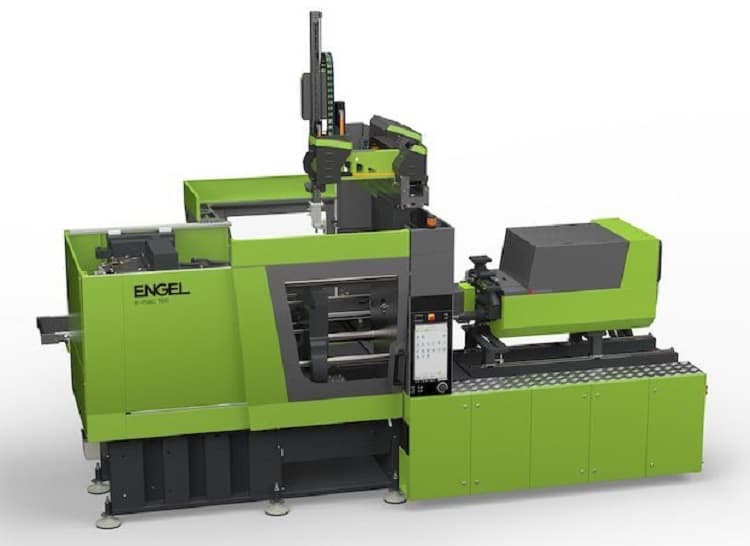
Inner Mongolia Junzheng Chemical Industry Co., Ltd. (Junzheng Group) has begun construction on the first phase of its biodegradable plastic recycling industry project. The Phase I project of the 2×600 kta BDO and 2×1.0 MM tpa PBAT/PBS/PBT/PTMEG green environmental protection recycling industry will be located in Wuda Industrial Park, Wuhai City, Inner Mongolia, China.
Inner Mongolia Junzheng Chemical Industry Co., Ltd. (Junzheng Group) has begun construction on the first phase of its biodegradable plastic recycling industry project. The Phase I project of the 2×600 kta BDO and 2×1.0 MM tpa PBAT/PBS/PBT/PTMEG green environmental protection recycling industry will be located in Wuda Industrial Park, Wuhai City, Inner Mongolia, China.
The plant will utilize BDO technology by Koch Technology Solutions (KTS, formerly INVISTA Performance Technologies) and will reach a single-line capacity of 300,000 tons per year, making it by far the largest single-stream Acetylene based BDO plant in the world.
“I’m pleased to see our advanced technology being implemented in the biodegradable plastics recycling industry again to support China’s ‘Carbon Peak’ and ‘Carbon Neutrality’ goals,” KTS President Adam Sackett said. “This is the first time Junzheng Group is utilizing KTS’s BDO licensing. We are working together to create a more cost effective BDO line that reduces the consumption of energy and raw materials, the number of operators and footprint. This project is significant for the biodegradable plastics industry both in scale and energy efficiency.”
Junzheng Group Chairman and General Manager Zhang Haisheng said, “The project meets the requirements of industry Cleaner Production Standards in terms of energy-savings, safety, environmental protection, quality and automation. The energy consumption is lower than the domestic advanced level.”
Junzheng Group, KTS and Chengda (detailed design) held the project kick-off meeting in April 2022. The overall project is scheduled to be completed by the end of 2023.
Koch Technology Solutions (KTS) is the technology licensing arm of Koch Engineered Solutions (KES). KTS creates value for our customers across a growing portfolio of technologies including the polyester value chain, the refining industry and 1,4-Butanediol plus its derivatives. We can combine our exclusive technologies, expertise and capabilities with those of other KES companies to provide overall solutions to optimize your capital investments and existing manufacturing assets.
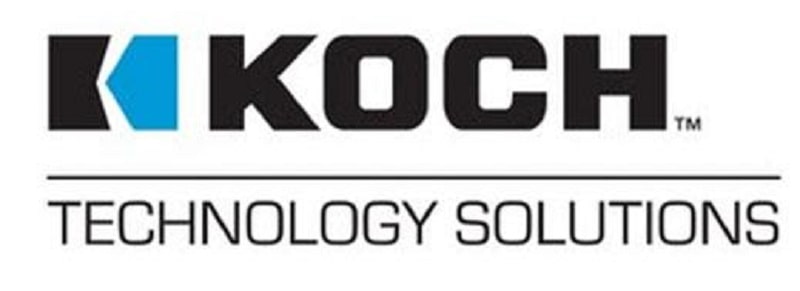
-Spot prices of PE and PP in Europe increased
Spot prices for polyethylene (PE) and polypropylene (PP) in Europe rose for the first time since April, ICIS reported.
The market is reacting to changing sentiment as producers separately push for energy surcharges or higher prices to cover production costs.
The sharp drop in polymer prices has reduced the profitability of production, especially as energy costs have risen to unprecedented levels and the cost of monomers has not decreased by the same amount as the cost of polymers. This is especially true of polypropylene, where spot prices for homopolymer fell below the cost of propylene.
Demand has recovered from the summer lull, but is still 10-20% below expectations for this time of year. On the other hand, it is stable, which balances the market after the reduction in production. Thus, price growth can be limited, although sellers are primarily focused on preventing further price drops.
The fall of the euro against the US dollar has limited the interest of exporters in Europe, reducing the available fresh export offers.
In recent weeks, many international sellers have turned their attention to Asia as demand has improved, prices have stabilized and recovered, but the situation has begun to grind to a halt. There are already signs that some sellers see Europe as a prospect, despite the weakening of the national currency.
Contract discussions are ongoing, but players mostly agree that October prices will not fall, despite lower monthly monomer costs. This has been reflected in the reaction in the spot market, although it remains to be seen how long this price recovery will last.
Consumers continue to restrict purchases, and many recyclers operate at a reduced load.
Government intervention in energy spending has reduced the strain on consumers’ wallets, but energy, fuel and food prices are higher than at the start of the year, and OPEC’s recent production cuts could lead to a further rise in gasoline prices.
Taken together, these divergent baselines paint a confusing picture, though the spot market has at least signaled the first significant change in polymer sentiment in six months.
∼∼∼∼∼∼∼∼∼∼∼∼∼∼∼∼∼∼∼∼
-Promise of end-of-life bio-assimilation
PFNonwovens (PFN) has high hopes for a new bio-assimilation technology that promises to enable the customised functional life of its nonwovens, followed by accelerated degradation after product disposal.
The company is working on the technology with Smart Plastic Technologies of Buffalo Grove, Illinois, explained Karthik Ramaratnam, PFN’s North American director of product development, at the EDANA Circular Nonwovens Forum held in Brussels on September 22nd.
“Hygiene products are predominantly polyolefin based with currently no clear circular solution,” he said. “This process could make polyolefins industrially compostable, with the anticipated end product being just biomass, water and only small amounts of CO2.”
PFN was established in 2018 through the merger of Pegas and First Quality Nonwovens and is owned by owned by R2G, a Czech family investment group.
Bico leader
Headquartered in Prague, it has 20 production lines at plants in the USA, Czech Republic, Egypt and South Africa, with over 1,000 employees. A leader in hygiene and medical nonwovens, it is the largest bicomponent spunmelt supplier in the world, with a combination of assets with proprietary technologies to supply consumer-preferred ultra-high loft, soft and textured nonwovens.
The company’s sustainable strategies to date include recycling and introducing a range of bio-based solutions from a combination of partial to 100% bio-sourced and mass-balanced approaches to reduce CO2 footprint. It has also introduced solutions to do more with less by downgauging products and increasing loft, while providing materials produced with 100% green energy and waste/energy/water reduction programmes.
With Smart Plastic Technologies, however, it is exploring options to accelerate degradation of nonwovens post-use, with Sptek Eclipse bio-assimilation technology, which is already being commercially integrated into plastic products such stretch films and straws. This masterbatch additive package does not affect material recyclability and is based on FDA approved chemistry. It contains an attractant to lure microorganisms which breaks the polypropylene down in six months under ideal conditions, and between one and five years under non-ideal conditions.
Free radicals
“The polypropylene stays intact for its designed functional life, protected by a stabilizer,” Ramaratnam said. “In the post-life bio-assimilation process, a catalyst creates free radicals to cleave the polymer backbone and the polymer gets broken up into smaller molecules. When small enough, microbes absorb and use these molecules as a food source. The microbes only release a small amount as CO2 and H2O.”
Critical validation steps have included demonstration on a high-speed nonwoven production platform showing minimal impact on nonwoven performance and an exploration of both thermal and chemical degradation.
Terrestrial, anaerobic and marine bio-assimilation tests are currently in progress with results anticipated by the second quarter of 2023.
